Coronavirus in Sewers? Don’t Panic! But be Careful.
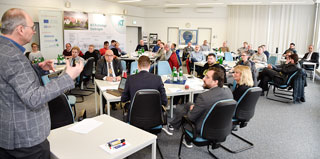
Current topic: Employees of wastewater companies discussed necessary protective measures in connection with the coronavirus epidemic at IKT.
Sewer network operators and service providers are also worried. They are rightly wondering whether infected people excrete the virus and whether it is then found in sewage? Can people be infected by wastewater? How can their staff and their relatives be best protected?
It is well known that pathogens can spread via human excrement and wastewater. After all, that is why there is a sewerage system. Prominent examples include hepatitis viruses, noroviruses and salmonella. So, there is basically no reason to panic. Representatives of sewage network operators agreed on this at a recent meeting of the Kommunales Netzwerk Abwasser (KomNetABWASSER – Municipal Network Wastewater) working group on “Sewer Operation”, held the at IKT ‑ Institute for Underground Infrastructure in Gelsenkirchen, Germany.
Municipalities provide ad hoc advice in KomNetABWASSER
The KomNetABWASSER was asked by wastewater companies to what extent it is still possible to deploy employees for cleaning work in underground chambers, in the sewer network and at wastewater treatment plant. IKT’s Marco Schlüter, head of KomNetABWASSER, made this the first topic on the agenda of the working group meeting, and summarised the discussion among the 30 sewer operation managers present as follows: “The Federal Minister of Health has determined the outbreak of the epidemic in Germany. In this situation it is particularly important for public health that the sewerage system continues to function reliably. The prerequisite for this is healthy operating personnel. The sewage companies agreed that three points must be observed in the current situation: Firstly, special care must be taken with occupational health and safety, secondly unnecessary risks should be avoided at present and thirdly, of course, the usual hygiene recommendations must be consistently observed”.Analysing risks
The Robert Koch Institute (RKI), which is responsible for risk assessment of infectious diseases in Germany, currently continues to assume that the risk to the German population is low to moderate. But, sewer workers are exposed to a potentially infectious medium, as the experts present at the meeting know. Their risk is therefore probably higher than that of the average population. And they return to their families after work, meet friends, chat with colleagues in the corridor. And they in turn…
Systems must operate!
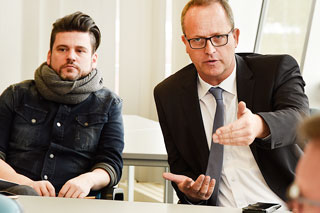
Prof. Bert Bosseler: “The plants have to be running, otherwise we will have quite different hygiene problems.
Protective equipment – follow the textbook 100%
The unanimous view of those present was: do not panic! It is important to inform and encourage employees to pay attention to their own behavior, to refresh their knowledge of occupational safety, to suspend work that is not immediately necessary and – very importantly – to carry out the required protective measures 100 percent according to the textbook.
“This means: Always wear the prescribed protective clothing, never eat, drink or smoke in the work area, wash your hands frequently and disinfect, and strictly observe the relevant regulations such as TRBA 220 and DGUV 103-003,” said Marcel Goerke, research assistant and expert for occupational safety at IKT, when explaining the recommended measures and rules of conduct to the meeting.Stop sewer cleaning?
The relevant Employer’s Liability Insurance Association (BG ETEM), in Germany, stated in response to an enquiry: For work that generates aerosols, the risk assessment of the specific activity could show that it is better to postpone the work if it is not absolutely necessary. This would mean stopping sewer cleaning for the time being. The representatives of the sewage companies present did not see this as a major problem as a temporary measure. However, cleaning of pumps and buildings cannot be suspended, said the network operators. This could lead to contact with contaminated wastewater. It is therefore all the more important to adhere strictly to the regulations on occupational safety.
Equipment shortages?
The question remained open as to what would happen if the safeguarding measures could no longer be implemented due to supply shortages. After all, most products come from China and nobody knows how the supply situation for important products will develop in the coming weeks. Protective suits of protection class 3 are still available, according to the participants, but longer delivery times must already be expected for FFP3 breathing masks.
3 principles
The participants agreed on three principles:
- Care in occupational safety!
- Avoid unnecessary risks!
- Consistently observe the usual hygiene recommendations!
Otherwise: Do not panic! But be careful.
Contact person
Marco Schlüter
KomNetABWASSER
T: +49 (0) 209 17806-31
E: schlueter@ikt.institute
What is KomNetABWASSER?
 The Kommunales Netzwerk Abwasser (KomNetABWASSER), or Community Network for Wastewater, is an initiative of about 60 German and Dutch wastewater companies. The aim is to jointly implement the obligation for municipal wastewater disposal in a better and more citizen-friendly manner – as cost-effectively as possible and in accordance with the generally recognised rules for the application of technologies. To this end, the Network makes use of IKT’s services. This means that not everyone has to reinvent the wheel again and again.
The Kommunales Netzwerk Abwasser (KomNetABWASSER), or Community Network for Wastewater, is an initiative of about 60 German and Dutch wastewater companies. The aim is to jointly implement the obligation for municipal wastewater disposal in a better and more citizen-friendly manner – as cost-effectively as possible and in accordance with the generally recognised rules for the application of technologies. To this end, the Network makes use of IKT’s services. This means that not everyone has to reinvent the wheel again and again.
Engine, idea provider, sparring partner
KomNetABWASSER sees itself as an initiator and supporter for the participating municipalities. Current topics, which the municipalities want to address, are scientifically examined and practically inplemented.
Many of the findings from the network work are incorporated into IKT’s training courses. Current examples are the ‘Sewer Operations Management’ course, the annual ‘SewerCleaningCongress – KRC 2020’ and the ‘Demand-oriented Sewer Cleaning’ workshops.
range of IKT’s professional trainings
Interested? You can find out more about KomNetABWASSER here. (in German only, sorry!)
Contact us
Marco Schlüter
T: +49 (0) 209 17806-31
E: schlueter@ikt.institute







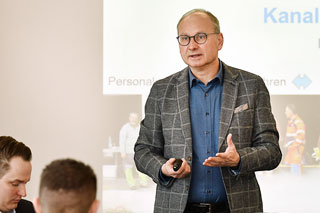
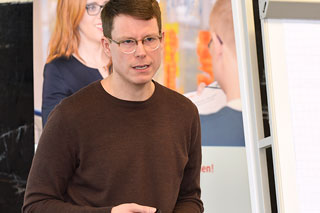


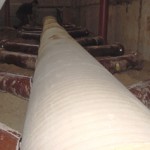
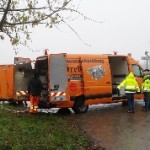
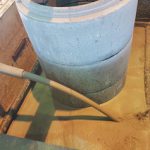
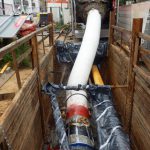
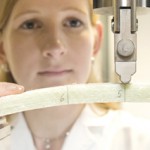


No Comments